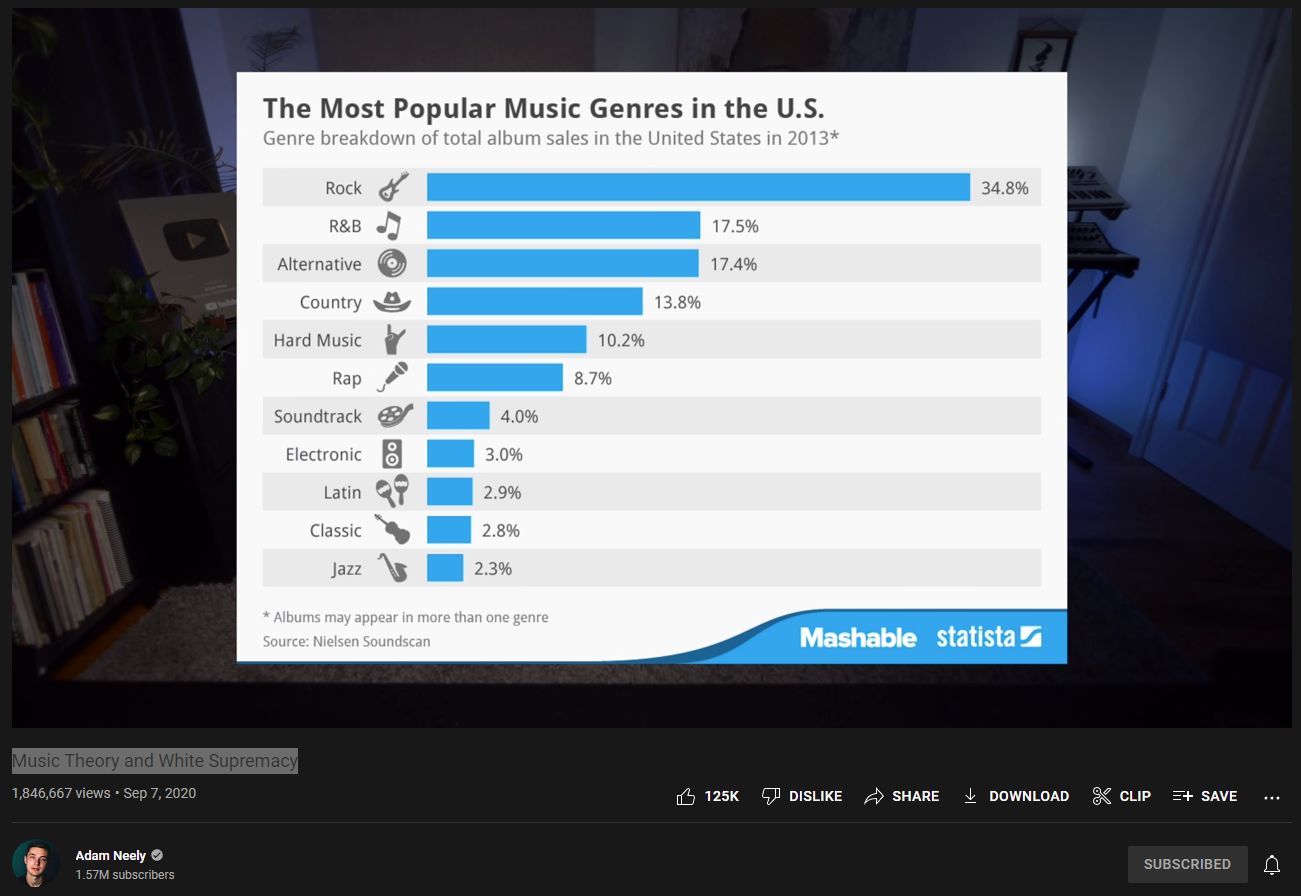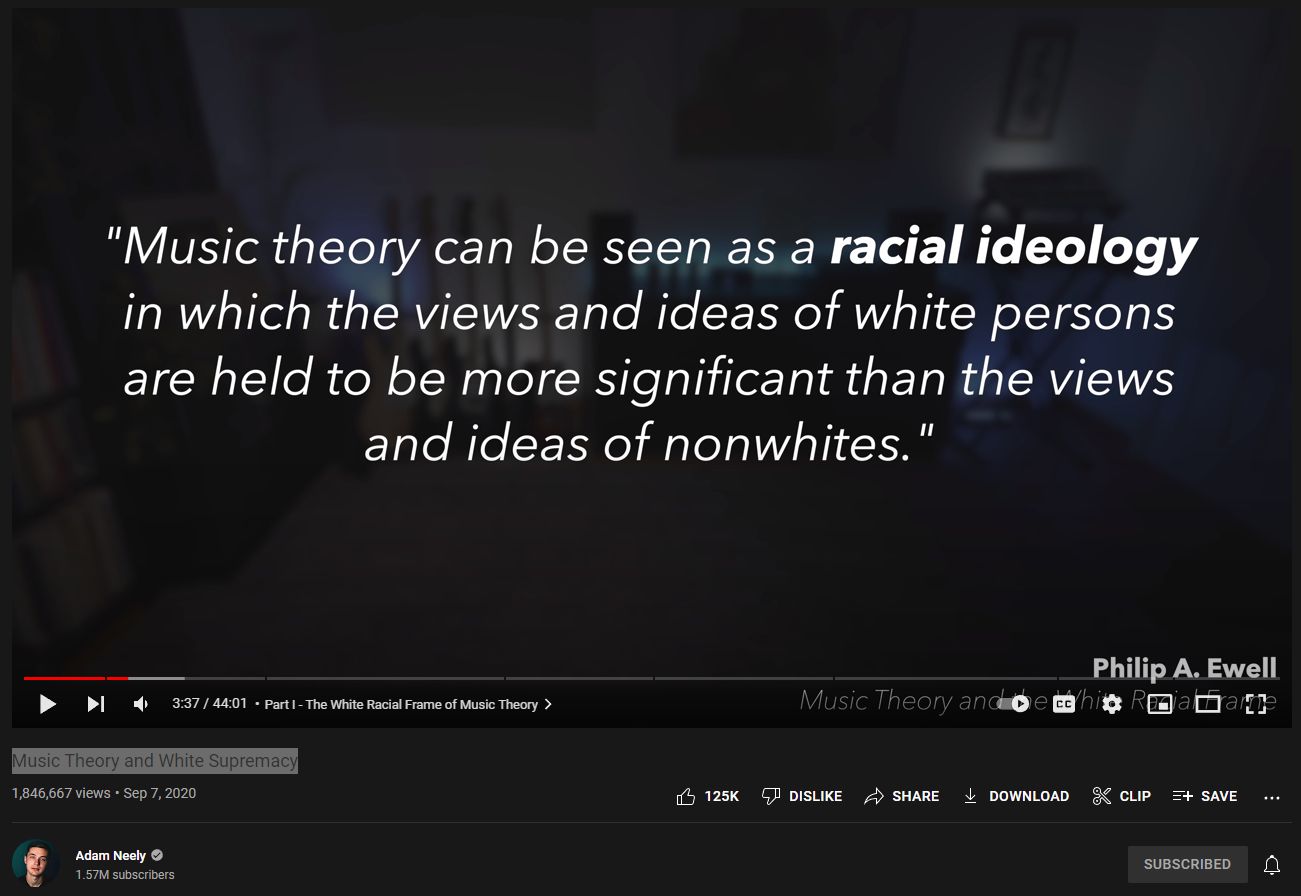Music Theory and White Supremacy
Original article — https://mtosmt.org/issues/mto.20.26.2/mto.20.26.2.ewell.html
“Music theory can be seen as a racial ideology in which the views and ideas of white persons are held to be more significant than the views and ideas of nonwhites.”

Excellent.



Dr. Philip Ewell, a music theorist and scholar, has gained attention for his discussions on race and racism within the field of music theory. In his essay titled “Music Theory and the White Racial Frame,” Ewell examines how racial biases and perspectives have historically influenced the development and practice of music theory, particularly within Western academia.
Some key points from Ewell’s essay and related discussions include:
1. Historical Context: Ewell contextualizes the development of music theory within broader historical narratives of colonialism, imperialism, and racial hierarchy. He argues that Western music theory has been shaped by Eurocentric perspectives that marginalize or erase contributions from non-white cultures and reinforce notions of white superiority.
2. Whiteness as Normative: Ewell critiques the ways in which whiteness has been constructed as the normative standard in music theory, with non-white perspectives and experiences often treated as deviations or outliers. He challenges the idea that Western European classical music is inherently superior to other musical traditions and argues for a more inclusive and diverse approach to music theory.
3. Representation and Diversity: Ewell advocates for greater representation and diversity within the field of music theory, both in terms of the scholars and practitioners who contribute to the discipline and the repertoire and traditions that are studied and valued. He calls for a more inclusive curriculum that recognizes the contributions of musicians and theorists from diverse racial and cultural backgrounds.
4. Critical Reflection and Action: Ewell encourages scholars and practitioners of music theory to critically reflect on their own biases and assumptions about race and racism and to take proactive steps to challenge and dismantle systems of white supremacy within the discipline. He emphasizes the importance of ongoing dialogue, education, and advocacy for racial justice and equity in music theory and beyond.
Overall, Ewell’s work challenges the status quo within music theory and calls attention to the ways in which race intersects with scholarship, pedagogy, and practice in the field. By centering discussions of race and racism, he seeks to foster a more inclusive and equitable approach to the study and appreciation of music across cultures and communities.
RE dance and music —- STAN TENEN and DAN WINTER (youtubers) prove the case that all Hebrew characters are in fact the shadows cast by a thin piece of metal (spiraled from thumb-tip to palm) moved between lightsource and darkened wall. Letterforms, and therefore patterns and words, are in fact replicable by movements — meaning, plainly, that language is also dance. Esoterica triumphs again! The dawwwette GRO (reverse that GRO) cyyte called “Sound Quality” has allll of this and much, much more.
The effort between dance and music is called drumming.
From comments: “KATY PERRY et al go to Number One not because of music theory, talent or anything else other than their role in an agenda outed by MARK DEVLIN and similar.”